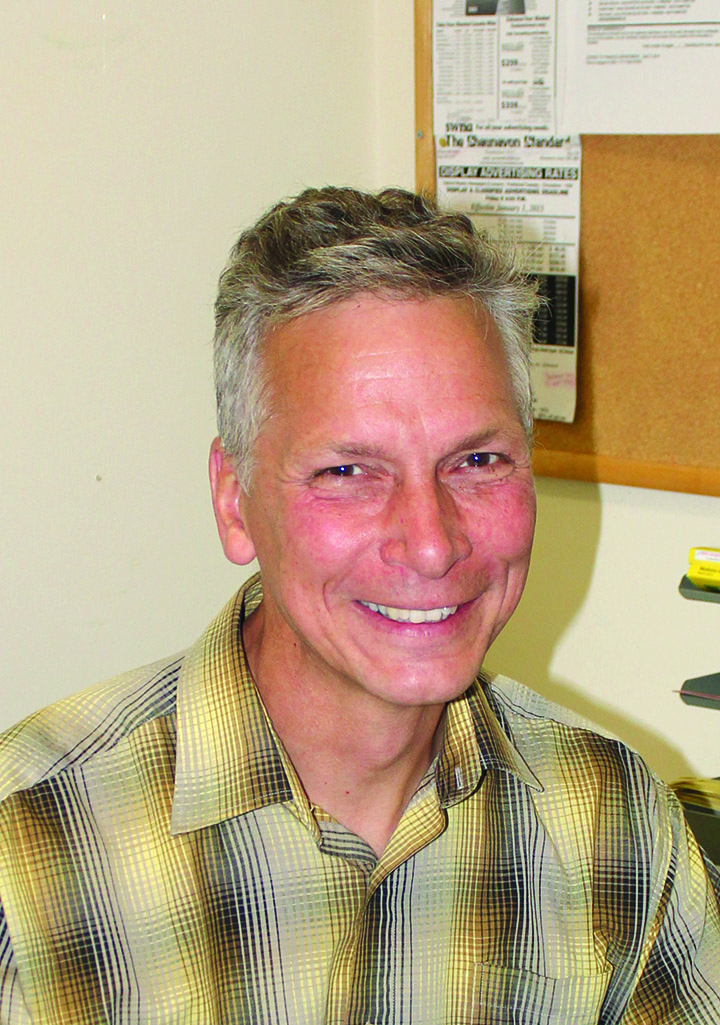War of words
Posted on March 13, 2018 by Maple Creek
Wayne’s World
by Wayne Litke
Tensions escalated, emotions ran wild and an unofficial war of words began one month ago. It spilled onto the streets, poisoned social media, infected homes and tainted media reports and letters to newspaper editors. Even our prime minister and federal justice minister jumped into the trenches without carefully considering the ramifications of their actions. The battle began on the eve of Feb. 9 when Saskatchewan farmer Gerald Stanley was found not guilty in the shooting death of Colten Boushie, a 22-year-old Indigenous man.
I am not going to delve into the details of Boushie’s death (which official media sources have extensively covered and social media users have twisted into a cesspool of foul comments and slurs). However, it is important to make note of the event because that is the day a propaganda campaign and war of words officially started. At least that is the way it seems in my mind – in my world.
Less than two weeks later, another gut-wrenching court case resulted in another white man being found not guilty in the death of Tina Fontaine, a 15-year-old Indigenous girl who was living in Winnipeg. Again words of agony, pain and bitterness filled the pages of print media, news broadcasts and social media. As was the case with the Stanley verdict, there were renewed calls for justice and social reforms.
I can appreciate that and feel overdue changes can be very positive if they are carefully considered and not performed as part of a knee-jerk reaction by a few federal politicians. If systems – social, legal or otherwise – need fixing, then it should be done and done well. It should not become an election tool or a method to increase popularity. Regarding the Fontaine case, I was somewhat surprised and somewhat pleased by the comments of Sheila North, grand chief of Manitoba Keewatinowi Okimakanak which is an organization that represents northern Manitoba First Nations.
Speaking to media after Raymond Cormier was found not guilty, North said, “This is a very difficult and tremendously sad day for our people. This is not the outcome anybody wanted.”
“The systems — everything that was involved in Tina’s life – failed her. We’ve all failed her. We as a nation need to do better for our young people. All of us.”
I am going to interject and say in my opinion, North was absolutely 100 per cent correct when she said “the systems” and “all of us” failed the youth. I want to emphasize those words “all of us” because it was the first time I heard such terminology spoken. It may have been used during the aftermath of the Stanley verdict, but I never heard it.
North continued, “Indigenous people, especially for our young people, this is a message to them that is probably discouraging saying that it’s okay to kill our Indigenous young people. It is not okay and it might not be this accused person that took her life, but someone took her life. That fact remains and we must get to the bottom of it.”
“We must understand why our Indigenous youth are marginalized in this way and stop it and seek to change it. This is not right. This is not the Canada that I want to be a part of. Our young people are precious. They are our future and if they are not healthy, none of us are healthy.”
“All of us should be ashamed of what happened to her (Fontaine) and to Colten Boushie and to others.”
I commend the chief on her desire to understand the factors that led to those two tragedies because a failure to truly examine all the underlying causes will not result in significant or lasting changes. Unfortunately, our Liberal government does not seem to understand that simple fact as Federal Crown-Indigenous Minister Carolyn Bennett was one of the first politicians to weigh in on the matter. According to CBC, she tweeted, “My thoughts are with Tina Fontaine’s family. Tina’s is a tragic story that demonstrates the failures of all the systems for Indigenous children and youth on every level. We need to do better — we need to fix this.”
I wonder if Bennett expressed the same sentiments to Fontaine’s family anytime in the past 3-1/2 years (her body was found in Aug., 2014) or if it was politically expedient to reach out after the verdict when people are hurt, angry and demanding changes.
Another interesting point is Fontaine’s mother (who abandoned her daughter and reportedly introduced her to drugs at Winnipeg) was at the trial when the verdict came down. She swore at the accused who was acquitted since the evidence was all circumstantial. Unlike the Stanley trial, I did not hear any complaints about an all-white jury, but there were plenty of comments about how the justice system and social services failed Fontaine. I don’t believe parental failure on her mother’s part was included in the criticism.
I, and a lot of Canadians, believe Sheila North is correct and we can all do better, but we have to address all the issues and that will take some serious soul searching by Natives and non-Natives. Tough questions and challenges must be addressed to make any real headway.
Getting back to the focus of this column, the Boushie and Fontaine cases have solidified people’s resolve to draw attention to changes they feel are essential. Recent actions by some of these individuals and their organizations are upsetting because they insinuate all non-Indigenous people (aka: settlers or colonialists) are racists, enjoy special privilege or have unfairly benefitted from the colour of their skin. These do-gooders avoid constructive dialogue and instead use propaganda to stir the pot.


Leave a Reply
You must be logged in to post a comment.